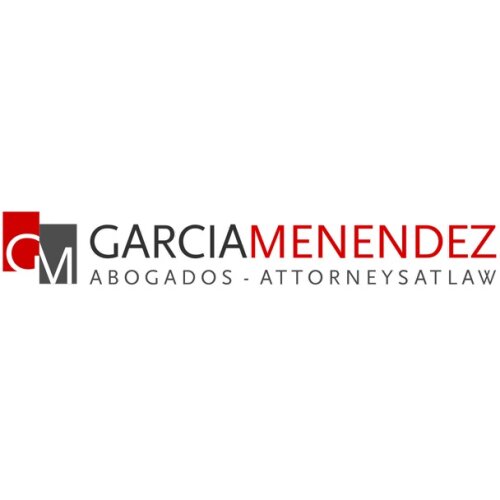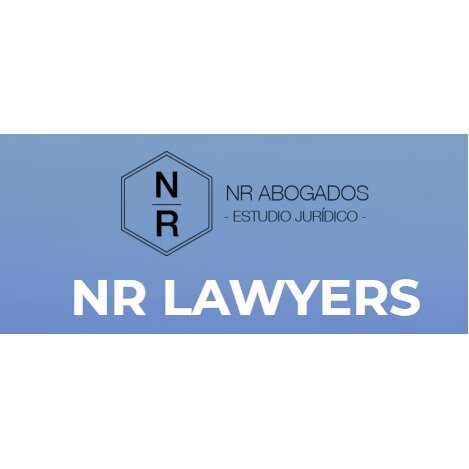Best Energy, Environment & ESG Lawyers in Buenos Aires
Share your needs with us, get contacted by law firms.
Free. Takes 2 min.
List of the best lawyers in Buenos Aires, Argentina
About Energy, Environment & ESG Law in Buenos Aires, Argentina
Energy, Environment & ESG (Environmental, Social, and Governance) law is an area that addresses the legal aspects of sustainable development, the responsible use of natural resources, and compliance with environmental and social standards. In Buenos Aires, the economic and industrial heartbeat of Argentina, these laws play a crucial role in shaping the city’s landscape and its impact at both national and international levels. Buenos Aires is subject to federal laws, provincial regulations, and municipal ordinances that govern areas such as energy generation, pollution control, climate change mitigation, renewable energy projects, corporate social responsibility, and environmental liability. As Argentina increases its focus on sustainability and climate obligations, navigating this legal landscape is essential for individuals and businesses alike.
Why You May Need a Lawyer
There are numerous situations in which individuals or businesses may require legal assistance in Energy, Environment & ESG matters in Buenos Aires. Common scenarios include:
- Obtaining permits and licenses for industrial or energy-related projects
- Understanding and complying with environmental impact assessments (EIAs)
- Responding to government inspections, audits, or environmental enforcement actions
- Advising on renewable energy investments and incentive programs
- Managing environmental liabilities and remediating contaminated sites
- Drafting and implementing ESG policies for organizations, especially for companies accessing international markets or funding
- Resolving disputes related to environmental damage, noise, air quality, or waste management
- Ensuring compliance with water, waste, and emissions regulations
- Participating in public consultations or administrative hearings for infrastructure projects
- Assisting in voluntary or mandatory disclosure of ESG factors to investors or the public
A skilled lawyer can help interpret complex laws, mediate with authorities, ensure due diligence, and limit risks related to non-compliance.
Local Laws Overview
Buenos Aires operates under several layers of regulation concerning energy, environmental protection, and ESG standards. Key aspects include:
- Environmental Framework Law: Argentina’s National General Environmental Law (Law 25.675) establishes the principles of environmental policy, including sustainability and prevention. It requires environmental impact assessments for certain projects and public participation in decision-making processes.
- Air, Land, and Water Regulations: Municipal and provincial authorities enforce strict guidelines on emissions, waste management, noise, and water use. Certain activities, like industrial development or energy generation, demand additional scrutiny and operational conditions.
- Renewable Energy Laws: Laws such as Law 27.191 aim to boost renewable energy projects by setting targets and providing tax breaks, incentives, and requirements for large users of electricity to include renewable sources in their consumption mix.
- Climate Change Commitments: Buenos Aires aligns with national laws and international treaties regarding carbon emissions, climate adaptation, and disaster response strategies.
- ESG Disclosure and Corporate Responsibility: Both federal and local requirements may oblige publicly traded companies and certain large businesses to implement and report on ESG strategies, ethics, and diversity policies, reflecting growing international expectations.
- Permits and Enforcement: Local government agencies issue environmental permits and carry out regular inspections. Non-compliance can result in fines, cleanup requirements, or even closure of facilities.
Frequently Asked Questions
What is an Environmental Impact Assessment (EIA) and when is it required?
An EIA is a formal process to predict the environmental effects of a proposed project before it begins. In Buenos Aires, an EIA is mandatory for various activities such as new industrial facilities, waste management centers, and large infrastructure projects. The process considers impacts on air, water, soil, biodiversity, and communities.
Who enforces environmental laws in Buenos Aires?
Enforcement is managed by both federal and local authorities. At the national level, the Ministry of Environment is the primary regulator, while the Buenos Aires Environmental Protection Agency and the Ministry of Environment and Public Space operate locally.
Do companies in Buenos Aires have to disclose their ESG practices?
Many companies, particularly those listed on stock exchanges or receiving international funding, are encouraged or required to disclose ESG practices and risks. These disclosures improve transparency for investors and the public, but the specifics depend on the company’s sector, size, and sources of capital.
What are common penalties for violating environmental laws?
Penalties range from monetary fines and operational suspensions to criminal liability in severe cases. The severity of punishment depends on the nature of the violation, prior offenses, and efforts made to mitigate harm.
Are there incentives for renewable energy projects?
Yes. Both national and provincial governments offer incentives including tax benefits, feed-in tariffs, and preferential financing for renewable energy (wind, solar, biomass) initiatives.
How do I report environmental pollution or non-compliance?
Citizens can submit complaints to the Buenos Aires Environmental Protection Agency or to the Ministry of Environment. They may also access public information or seek legal assistance to initiate formal proceedings.
Can individuals participate in environmental decision-making?
Yes. Argentine law and city ordinances guarantee public participation, especially during EIA processes and through public hearings or consultations for major projects.
What obligations do businesses have for waste management?
Businesses must segregate, treat, and dispose of waste according to local and federal regulations. Dangerous or industrial waste is subject to even stricter controls, including the need for special permits and traceability.
Is environmental insurance mandatory?
Certain high-risk industries are required to obtain environmental insurance to cover potential damages and facilitate remediation in case of accidents or contamination.
What are ESG criteria, and why are they important?
ESG criteria are standards for a company’s operations that socially conscious investors use to screen potential investments. They focus on how a company manages risks and opportunities related to environmental protection, social responsibility, and governance practices.
Additional Resources
Those seeking more information or support can contact the following organizations:
- Buenos Aires Environmental Protection Agency (Agencia de Protección Ambiental de Buenos Aires)
- Ministry of Environment and Public Space of Buenos Aires
- National Ministry of Environment and Sustainable Development (Ministerio de Ambiente y Desarrollo Sostenible)
- Argentine Renewable Energy Chamber (Cámara Argentina de Energías Renovables)
- Argentine Business Council for Sustainable Development (CEADS)
- Argentine Association of Environmental Lawyers (Asociación de Abogados Ambientalistas de la Argentina)
- Local law schools with environmental law clinics
Next Steps
If you believe you require legal advice or representation regarding Energy, Environment & ESG issues in Buenos Aires, consider the following steps:
- Gather all relevant documentation about your project or concern, including permits, correspondence with authorities, and technical reports
- Consult with a specialist lawyer experienced in energy, environmental, or ESG matters who understands both local and national regulations
- Define your goals and key issues to discuss, such as compliance concerns, dispute resolution, or project development
- If urgent, contact the relevant governmental agency while seeking legal assistance to avoid missed deadlines or unintended violations
- Stay informed about legal obligations by attending workshops, reading updates from official agencies, or joining industry associations
Regardless of the size or complexity of your issue, timely and informed legal advice can save considerable time and resources, minimize risks, and help you achieve sustainable success in Buenos Aires both legally and ethically.
Lawzana helps you find the best lawyers and law firms in Buenos Aires through a curated and pre-screened list of qualified legal professionals. Our platform offers rankings and detailed profiles of attorneys and law firms, allowing you to compare based on practice areas, including Energy, Environment & ESG, experience, and client feedback.
Each profile includes a description of the firm's areas of practice, client reviews, team members and partners, year of establishment, spoken languages, office locations, contact information, social media presence, and any published articles or resources. Most firms on our platform speak English and are experienced in both local and international legal matters.
Get a quote from top-rated law firms in Buenos Aires, Argentina — quickly, securely, and without unnecessary hassle.
Disclaimer:
The information provided on this page is for general informational purposes only and does not constitute legal advice. While we strive to ensure the accuracy and relevance of the content, legal information may change over time, and interpretations of the law can vary. You should always consult with a qualified legal professional for advice specific to your situation.
We disclaim all liability for actions taken or not taken based on the content of this page. If you believe any information is incorrect or outdated, please contact us, and we will review and update it where appropriate.
Browse energy, environment & esg law firms by service in Buenos Aires, Argentina
Buenos Aires, Argentina Attorneys in related practice areas.
















